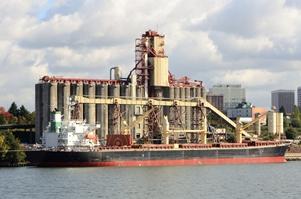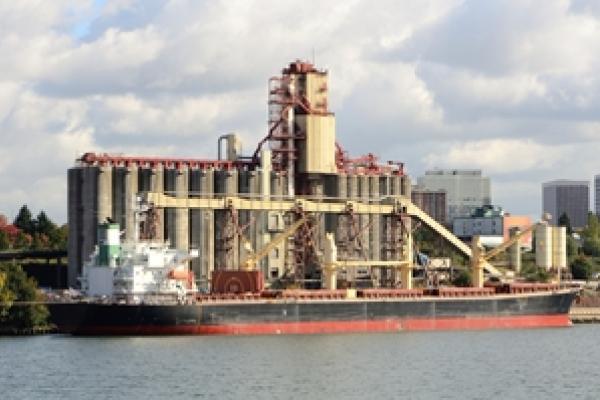
Steamship Mutual
Published: May 01, 2013

CHS Inc Iberica SL and Another v Far East Marine SA (“The Devon”) was a successful claim in the High Court by cargo interests against the owners of the vessel for losses arising from delays following an engine breakdown. Shortly after the vessel sailed from Varna, Bulgaria, the vessel’s automated systems initiated a protective shutdown of the main engine due to a high lube oil temperature warning and oil mist alarm activation. The vessel was towed back to Varna, where she underwent repairs. No claim was made for General Average.
As a consequence of these events, the laden voyage to Tarragona, Spain was delayed by a total of 59 days. In that time, the condition of the cargo of corn deteriorated and, on arrival at the discharge port, about 600mt out of a total of 14,353.50mt was caked and mouldy. Cargo interests claimed compensation for the reduction in value of 3020mt of the total cargo which they sold for salvage, and other associated costs, including, notably, the legal costs they had incurred in securing their claim against owners.
The essence of the dispute was whether (or not) owners had exercised due diligence to make the vessel seaworthy before and at the beginning of the voyage. Owners also questioned whether receivers had taken reasonable steps to mitigate their loss.
Cargo interests alleged that owners had breached the bill of lading contract by failing to proceed with all convenient speed and, further, that the vessel was unseaworthy by reason of:
1. the poor condition of the vessel’s engine lubrication and lubrication cooling systems; and
2. the lack of adequate systems on board the vessel to ensure that:
i) the temperature of the engine lube oil was properly regulated;
ii) the cooling system did not become blocked; and
iii) the engine was adequately lubricated.
Owners’ expert was unable to identify a definitive cause of the incident but, in his opinion, the engine damage could have occurred due a momentary interruption in the supply of oil to the bearing which had failed, or a premature failure of a white metal bearing. Bearings would normally be expected to last for 24,000 running hours or longer, but there were occasions when they have failed well before the end of their expected life.
In contrast, charterers’ expert considered that the incident had resulted from the saltwater (SW) cooling system inlet becoming blocked by debris which had, in turn, led a failure of the low temperature fresh water (LT FW) cooling system, leading to high temperatures in the lube oil for the main engine. However, neither expert was able to identify the precise mechanism of the damage.
Mr Justice Cooke held that this was not a case where unseaworthiness could be inferred from the timing of the breakdown. Nevertheless, taking into account the timing of the incident and sequence of events, cargo interests’ expert evidence was to be preferred. The vessel had been unseaworthy because owners had no system in place for properly monitoring temperatures of the engine lube oil or pressures of the SW cooling system, meaning that the SW cooling system was prone to fail and the lube oil to heat. The lack of a proper system would have been apparent at Varna. Had the temperatures and pressures been monitored, the problem would have been uncovered sooner, and before the alarms sounded and the engine shut down. However, there had been no separate breach of the owners’ obligation under the bill of lading contract to proceed with all convenient speed as the repairs had been necessary for the prosecution of the voyage. It was additionally found that receivers had not failed to properly mitigate their loss in selling 3020mt of cargo to a salvage buyer in an arm’s length transaction, and owners' arguments that the cargo was sold at an undervalue and/or should have been mixed with sound cargo were not accepted.
As mentioned above, receivers claimed the costs they had incurred in obtaining security; in fact Spanish lawyers’ fees for arresting the vessel. Owners referred to “Ocean Dynamic” [1982] 2 Lloyd’s Rep 88 at p94 and submitted that the costs of foreign proceedings were irrecoverable in principle. However, Mr Justice Cooke held that the present case was distinguishable since the Spanish proceedings were for security purposes and would fall to be decided alongside liability issues, whereas the in “Ocean Dynamic” the claim was for the costs of commencing proceedings in the U.S. (in addition to English proceedings) which were later discontinued. Receivers had been entitled to arrest to obtain security and there was no substance in the argument that arrest was premature or unnecessary. The costs of arrest were a foreseeable and sufficiently direct consequence of the breach to enable them to be recovered as contractual damages.
CHS Inc Iberica SL and Another v Far East Marine SA (“The Devon”) QBD (Comm Ct) (Cooke J) [2012] EWHC 3747 (Comm), 21 December 2012
Article by Andrew Hawkins


